The weeks are just flying by, I can’t believe we are well into June already. Here is another Mystery Creature to keep you guessing this week … do you know this one?
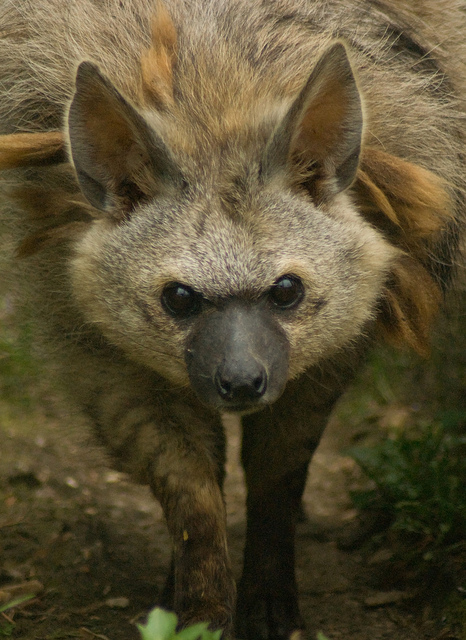
Science, Curiosity and Life

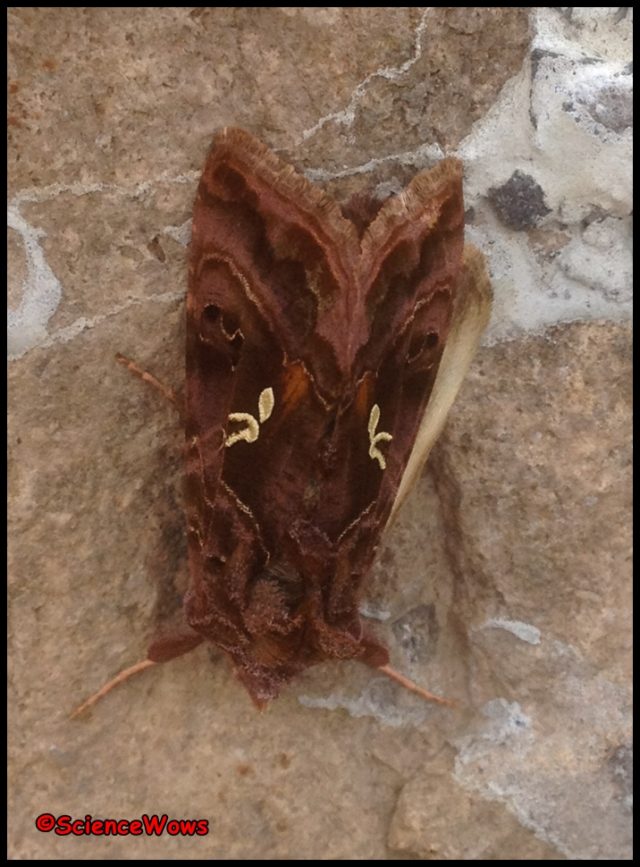

Did you guess last week’s Mystery Creature? Although quite a common moth in Ireland I must admit I had never seen one before;
It was the Beautiful Golden Y Moth (Autographa pulchrina).
The larva feed on low plants such as nettles, ragworth and honeysuckle and will often overwinter in this state.
The moths can usually be seen from late May to August, they are commonly found in gardens, hedgerows, wasteland and woodlands.
I will post a new Mystery Creature this evening so stay tuned 🙂
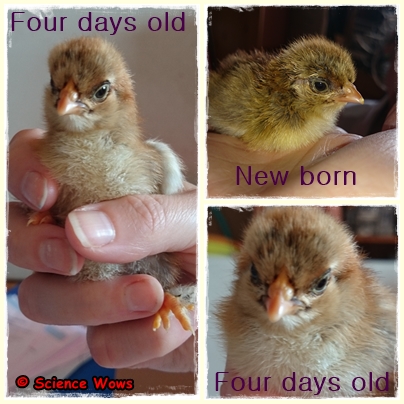
We had been keeping a close eye on our broody hen and the clutch of eggs she had under her. Usually when a hen goes broody we let them off to do what they do naturally. A broody hen will build up a clutch of up to a dozen eggs or more before sitting on them for about 21 days until they hatch. This hen had nine eggs under her and we were expecting things to start happening last Tuesday.
Did you know… the term to feather ones nest comes from a broody hen plucking it’s own chest feathers to allow skin to egg contact which is necessary for the correct temperature incubation of the eggs?
We kept checking on her over the weekend and on Monday my husband spotted the first chick had arrived, but was dead when we saw it. We were quite concerned and upset about it but felt it was too late to move mama and eggs indoors for observation.
Tuesday morning and my husband reported another chick, alive this time and sticking it’s head out from under mama’s wing. An hour later and unfortunately things were not good, this chick was dead and another with it. I had read that sometimes a hen will kill the chicks once they hatch and although I didn’t know of anyone who had ever experienced it, it was a possibility here and time to take action.

We don’t own an incubator but managed to borrow a UV light from a friend. We moved all remaining (six) eggs from under mama hen and placed them indoors in a box under the warmth of the light.
Suddenly our home turned into a chick maternity ward… we could hear chirping from three of the eggs and knew that these ones at least were ready to hatch. As we are such a nerdy household we happened to have a little digital monitor that can tell temperature and humidity… we put it to good use in the new hatchery… and I spent the day moving the UV light up and down to control the temperature and spraying a fine mist of water over the eggs to maintain the humidity.
When using an incubator the temperature must be kept between 36 to 39oC and the humidity between 50 to 60%.
The hatching process seemed never ending…. one chick broke a little hole through the egg and then did very little else for the day. Another managed to chip away until he had made a break around the entire top of the shell and then he stopped too.
Eventually, with all the family watching, this chick made its debut. It was very exciting for all of us to watch.

The activity seemed to rally the second chick because within an hour it had arrived too… about half the size of it’s sibling but still perfect in every way. At 4.30 am the third chick made its appearance. I know this because I got up frequently during the night to check that they were all okay!! At this stage hubby had left for a business trip and I was solo on maternity duty!
I felt if they could make it through the night they had a good chance.
Next morning the children were delighted to see that there was now three little chick alive and well and oh so cute!

So let me introduce you to the three youngest member of our “family”….
First to hatch was this little one…

Next came this tiny little one, small but perfect….

And finally, this little blondie….

The chicks are now four days old and growing by the minute! Their real feathers are already starting to appear… growing up fast! As you can see from some of the photos they have feathery feet. This is a feature of the pekin hen. They father is a Pekin, their mother a cross between a Pekin and a Hamberg (both are bantam breed).
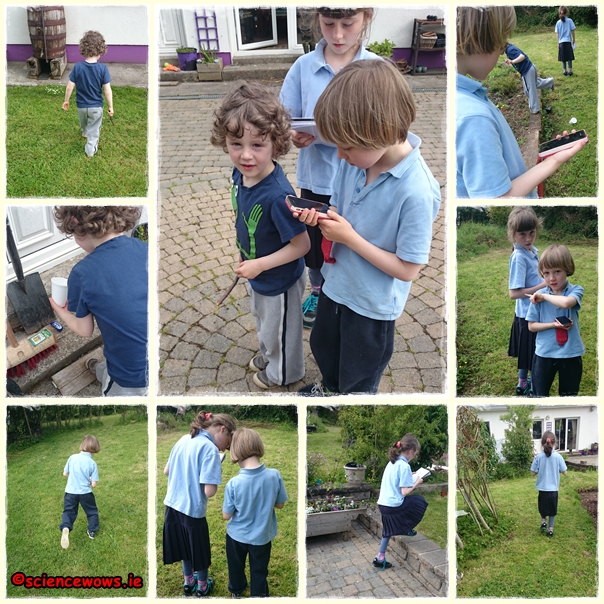
We can’t get enough of magnets in this house it seems! Last week we shared one of our favourite games and this week it is all about how the compass works, how to make one and another great game to try!
The ancient Greeks knew about lodestone, an iron rich rock that was naturally magnetic. The Chinese are credited with discovering that loadstone would always point towards North if suspended to allow it turn freely. A Chinese Scientist called Shen Kua described the first magnetic needle compass in 1088 AD; his experiments with suspended strips of magnetised iron showed how the strip always points North and how this could be used in navigation.
The arrival of the compass modernised navigation and travel, especially by sea. Before the compass, sailors relied on navigation by the stars but this was tricky on a cloudy night!
Did you know… sailors were forbidden to eat onion or garlic as their breath was thought to interfere with the compass needle?
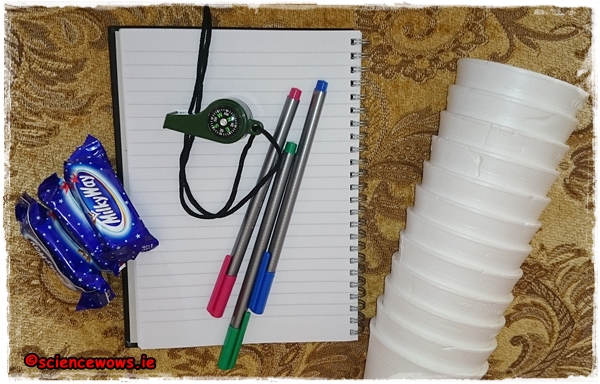
You will need…. some non see through cups or bowls, some treats or treasure to find, a compass, a notepad and a pen.
Setting it up… this is an easy game but it does require a little setting up before you let the children loose! Place the cups (upturned) all around the garden, hiding a treat underneath a few of them. One treat per child.
Decide on a starting point. Map out a route for each child starting at that point and walking X steps North/South/East or West.
Map a different route for each child to a different cup containing the treasure, here is an example…
take 3 steps North
take 3 steps East
take 11 steps North
take 14 steps West
take 5 steps South
take 10 steps East
take 11 steps West
You can make is as long and winding as you like. Remember to get an idea of each child’s step length before you start! Once you have prepared a route for each child you can call them out and let the fun begin.
Each child starts at the same point and needs to follow the instructions given to them, using the compass for direction! Once the instructions run out the child lifts the nearest cup to (hopefully) reveal their prize.

The beauty of this game is that you can make it as simple or as complicated as you like, adjusting each set of instructions to a child’s age so children of different ages can get involved.

My children are ten, eight and four and they really loved this, we have plans to make it bigger and better next time!

One of the best things I have found from setting up Science Wows, is how interested my children are in what I do! Questions, advice and suggestions come around the clock…
“Mum, can we play the magnet game again?”
“Mum, I have a science joke for you”
“Mum how does my body make poo?”
Even more commonly I hear “Mum, come quick… this would be great for your blog!”
When I got home from the shops the other day my eight year old son had found something for me… he had roped Dad in to taking a picture so I could have it for my blog… what a great family effort!

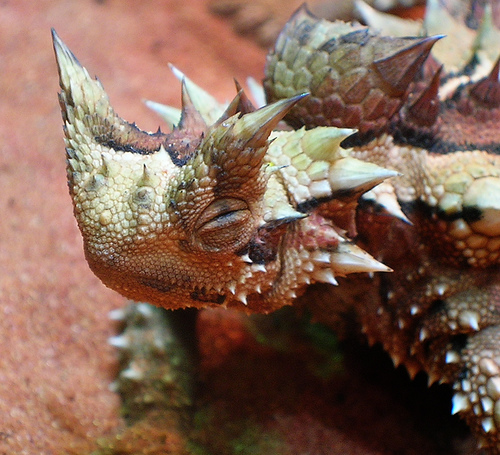
Did you guess last week’s Mystery Creature? It was the Thorny Devil (Moloch horridus) or Thorny Dragon. This formidable looking lizard is native to Australia. But it he as dangerous as he looks? Here are some interesting facts about the Thorny Devil.

The name Thorny Devil or Thorny Dragon is quite an intimidating monocle but even more so is the scientific name for these lizards… Moloch horridus; Inspired by the poem Paradise Lost (by Milton) in which the god Moloch is described as “a horrid king besmeared with blood of human sacrifice”!
In reality the Thorny Devil does not live up to it’s name as it is small in stature (no more than 20 cm), slow moving and eats only ants (thousands per day)
As well as ants, the lizard needs water to survive the arid scrub lands and deserts of it’s Central Australian habitat. It has a very interesting way of “harvesting” water. It walks slowly through the scrub letting dew drops fall on it’s thorny body. Between the thorns are tiny channels that carry the water right to the Thorny Devil’s mouth.

Another interesting feature of this animal is it’s defense mechanisms. Although in reality it does not have any real weaponry of defense it’s thorny exterior acts as a deterrent to potential predators (mainly wild birds). If this is not enough he bends his head, revealing a false head with big horns above his neck.
So although the entire surface of the Thorny Devil is covered in spiky scales these are to defend rather than to harm!

According to the Collins Dictionary, quirky is defined as….
quirky (ˈkwɜːkɪ)
peculiarly individual or unconventional
Synonyms
= odd, unusual, eccentric, idiosyncratic, curious, peculiar, unpredictable, rum, singular, fanciful, whimsical,capricious, offbeat, out there
I was talking to a friend at a party recently and in the course of the conversation she referred to me as quirky. She meant it in a nice way and I certainly didn’t take offense, I was probably pleased in a way, but also surprised.
Quirky, me? I thought I was the boring sensible one!
Now if we had been talking about my husband I would definitely have said quirky was spot on.
I have even used the word … affectionately… when talking about my daughter…. She is highly creative, imaginative, musical, individual and, well quirky.
But me? I thought I was the boring predictable one!
So I decided to ask around, starting first with my quirky husband!
His response was to remind me how often he has come home from work to find me (sometimes literally) knee deep in some experiment or other, usually with the kids involved too but all thoughts of time… or a dinner, forgotten.
He reminded me of opening the front door to find laughing children darting and running as I bombarded them with giant smoke rings; that there have been jars of “muck” on the windowsill for weeks and that I did in fact serve him green eggs and ham for dinner recently!
Okay, I concede, these things might have happened, but does that make me quirky?
Next I asked my children, of course they needed a definition first! Once the had the gist of things they all agreed that Dad is definitely quirky (so its not just me that thinks it!) but after a little discussion and consideration they did fell that YES I also fell into the quirky category.
They all found it hard to say exactly why but the word “science” popped up a lot in the conversation.
Another friend of mine called round for a cuppa. She barely had the first sip of tea when I asked her… “So, do you think I am quirky?” Without lifting her head from the cup her reply was instant… “Yes, of course you are?”
Wow, I had no idea – this was becoming quite a revelation!
When I asked her why she said it was because of the way I thought, how I looked at life from unusual angles and my creativity, often through science.
Finally I asked on line… I wondered how my on line friends would perceive me, having never actually met me “in the flesh”.
The answer? Yes, you guessed it…. “Quirky, quirky, quirky!”
I am reassured though, as the lovely Lucy (over at Learner Mama) pointed out… “Quirky and geeky are all in right now”
Looks like I am accidentally on trend for a change… now that is a bigger surprise than the Quirky bit!
I must concede, yes I am a little quirky, and I think I kind of like that! It seems that science has a large part to play in all this but the question then remains…
… am I quirky because I am a scientist or am I a scientist because I am quirky?
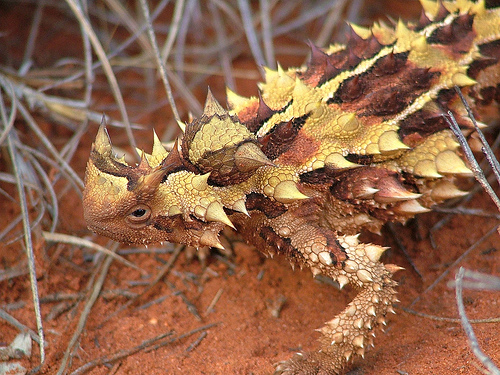
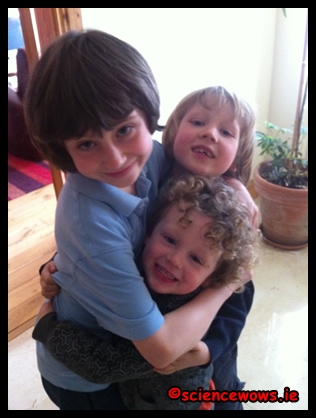
There is always plenty of wisdom to be found over on the Learner Mama blog and this week Lucy has shared ten random facts she has learner in Motherhood. I immediately started composing my own list in my head … and as it is a linky I get to share them too!
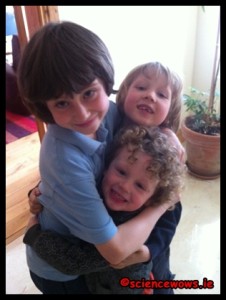
1. When up against the superior knowledge of a four year old… just accept that you are wrong and they are right. It does not matter how many degrees you may have in the subject… YOU ARE WRONG… accept it!
2. It seems there really is an infinite number of characters in the world, just keep having children if you don’t believe me and you will marvel at how different each child is!
3. Bed time guilt… watching the face of your beautiful sleeping child will fill you with guilt and remorse for being so frustrated and impatient during the process of trying to get them asleep in the first place.
4. However if your sleeping beauties wake in the night all guilt is forgotten and you immediately revert back to the states of frustration and impatience!
5. There is nothing sweeter than a pair of little arms wrapped around your neck in an “I love you Mommy” hug.
6. No matter how hard it might be to understand most of your toddlers words, if they decide to use a “bad” word it will come out clear as a bell, especially if in a public place.
7. It is virtually impossible to suppress a laugh when your child does use a “bad” word for the first time.
8. Throw away the parenting books and don’t ask every parent you meet for advice… remember you have millions of years of evolution on your side… no one really knows your baby as well as you do, so just relax and trust your instincts and you will know what is right! (It took me A LONG time to realise that one!!)
9. All previous eight point can be disregarded as I have learned that every thing I think I have learned since becoming a mother gets disproven by my children, eventually! They like to keep me on my toes so the rules are only the rules until someone decides to change them!
10. The capacity of your heart to love someone completely and unconditionally is infinite. There is no science to explain this one but I have learned it to be true every time I have looked into the face of each of my children for the very first time.
They are just my ten random things but it you want to find out what other people have shared, check out the linky over at Learner Mama (just click on the image below). It makes for great reading, there are plenty of points you will agree with and some that will surprise and amuse…. and if you want to share your own ten points then just join right in!

This week’s Fun Friday post is a round up of all our favourite sound experiments and facts. Hear it, make it, feel it and even see it… guaranteed for a weekend full of fun!

We love this simple experiment to make a spooky sound cup… see what kind of sounds you can make with it.
Just click on this link to find out what to do…

All you need for this one is a balloon and a radio or other music player.
Blow up a balloon and tie it. Turn on the radio to a song with low base music. Hold the balloon between your two hands and hold it very
near the speaker of the radio.
What can you feel?
Change to a different radio station and see if the vibrations change.

This one never ceases to get a WOW from everyone, and for a change Dr. How is on the other side of the camera to show how it works … click on this link to check it out.
